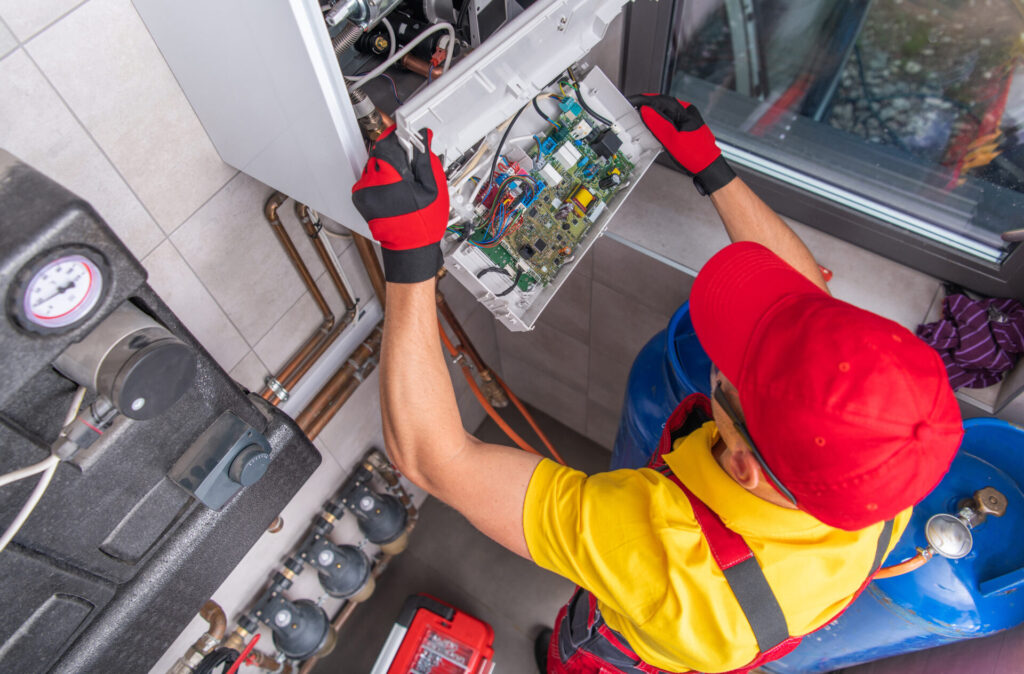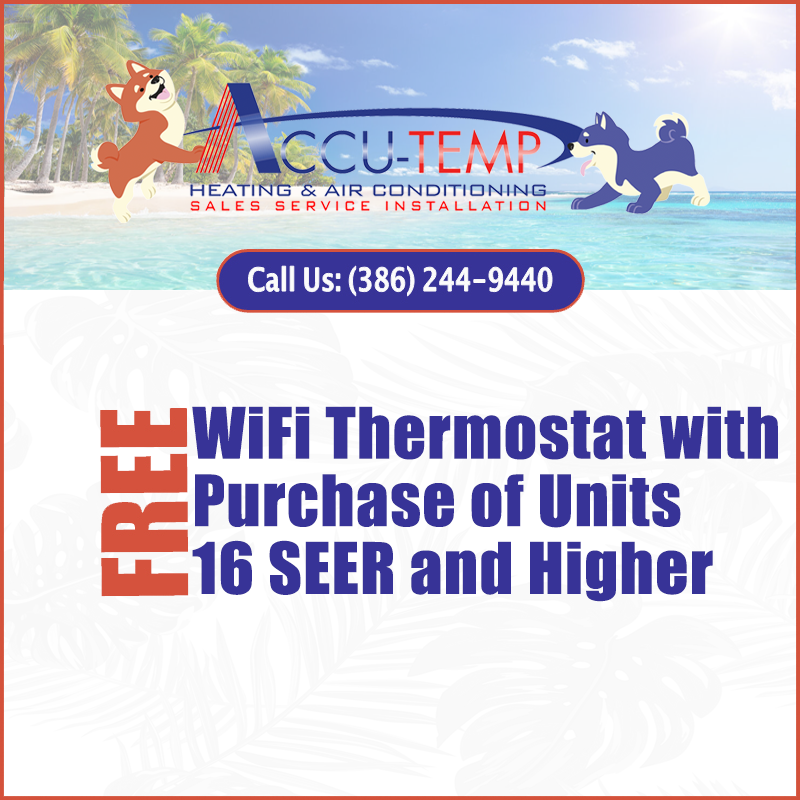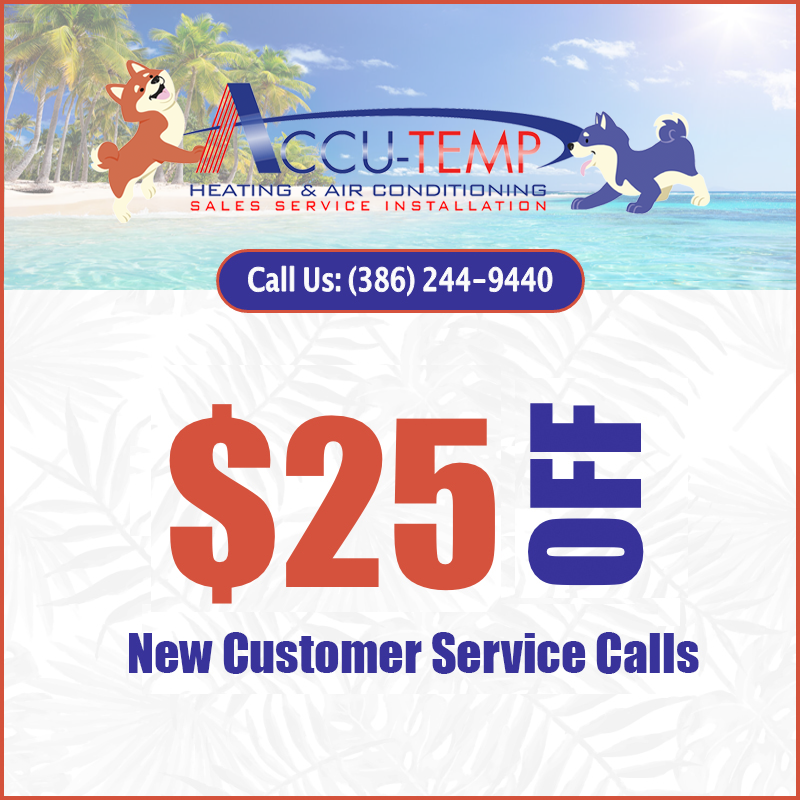For homeowners in Flagler Beach, staying warm during the winter months is essential to maintaining a comfortable living environment. Although heating systems are designed to last for several years, there comes a time when a replacement is inevitable. We aim to provide a comprehensive guide to heating replacement, covering essential information to help you make informed decisions on upgrading your home’s heating system.
Heating replacement involves assessing your current heating system’s condition, performance, and efficiency, and determining whether it’s time to install a new system. A well-maintained heating system should last for around 15-20 years, considering factors such as usage, maintenance, and system type. However, numerous factors can contribute to its decline earlier than expected, warranting a replacement to maximize comfort, ensure safety, and optimize energy efficiency in your home.
Types of Whole Home Air Cleaners and Their Mechanisms
To make informed decisions about their indoor air quality solutions, homeowners must understand the various types of whole home air cleaners and how they function. These systems can be broadly classified into two categories: mechanical and electronic.
1. Mechanical Air Cleaners: These systems rely on physical filtration mechanisms to capture and remove particulate matter from the air. There are two primary types of mechanical air filters, as follows:
a. High-Efficiency Particulate Air (HEPA) Filters: A gold standard in air filtration, HEPA filters can remove a minimum of 99.97% of particles as small as 0.3 microns, including allergens, dust, and mold spores. Whole home air cleaners that utilize HEPA filters offer superior particle capture and removal capabilities, although they may require frequent filter replacements and result in higher pressure drops within the HVAC system.
b. Media Filters: These air cleaners utilize dense, pleated filter media with increased surface area compared to standard HVAC filters, enhancing particle capture and airflow efficiency. Many whole home media filters are designed to be compatible with existing HVAC systems or duct configurations and can be incorporated without significant modifications.
2. Electronic Air Cleaners: Instead of relying on filters, electronic air cleaners leverage electrical forces to attract, capture and remove airborne particles. They can be classified into two primary types:
a. Electrostatic Precipitators: These air cleaning systems generate an electric field, imparting an electrical charge to passing particles. The charged particles are then collected onto oppositely charged plates within the air cleaner, effectively removing them from the airstream.
b. Ionizers: Also known as ion-generating air cleaners, these systems release charged ions into the air, which attach to airborne particles and cause them to clump together. The larger, clumped particles can then be more easily captured by the HVAC system’s filters or allowed to settle on surfaces to be removed through normal cleaning.
Factors to Consider When Choosing a Whole Home Air Cleaner
Multiple factors must be considered when selecting the best whole home air cleaner for your Flagler Beach residence. These factors include:
1. Filtration Efficiency: The air cleaner’s ability to remove particles, allergens, and contaminants is a crucial determinant of its effectiveness. Opt for systems with high-efficiency filters, such as HEPA or media filters, to ensure optimal air quality improvement.
2. System Compatibility: It’s essential to choose an air cleaner that is compatible with your existing HVAC and ductwork setup. Consult with an HVAC professional to assess compatibility and determine any necessary modifications.
3. Noise Level: Ensure the air cleaner’s operation meets your noise level preferences and does not create a disturbance in your home.
4. Maintenance Requirements: Consider the frequency of filter replacements, cleaning schedules, and any potential operational costs associated with the air cleaner.
Take the time to research and consult with HVAC professionals to find the best whole home air cleaner that meets your unique needs and living conditions.
Proper Maintenance for Optimal Performance and Longevity
Like any other home appliance, consistent maintenance is a key component to prolonging the lifespan and performance of your whole home air cleaner. Some essential maintenance tasks include:
1. Regular Filter Replacements: Follow the manufacturer’s recommendations for filter replacement schedules, ensuring your air cleaner operates at peak performance and maintains optimal filtration efficiency.
2. Cleaning Electrostatic Plates or Ionizers: Electronic air cleaners require periodic cleaning of charged plates or ionizer components to remove accumulated particles and maintain efficiency.
3. Inspecting and Cleaning Ductwork: Keeping your home’s ductwork clean and free from debris enhances not only the efficiency of your whole home air cleaner but also the overall performance of your HVAC system.
By adhering to the recommended maintenance routines, your whole home air cleaner will consistently provide enhanced indoor air quality and a healthy living environment.
Conclusion: Create a Healthier Home with Whole Home Air Cleaners
Whole home air cleaners offer a comprehensive solution to improving indoor air quality in Flagler Beach homes, ensuring families breathe easier and enjoy a healthier living environment. Understanding the various types of air cleaners, their operational mechanisms, and essential factors to consider when selecting a system will empower homeowners to make informed decisions appropriate for their specific needs. Additionally, consistent maintenance practices will ensure optimal performance and longevity, making whole home air cleaners a worthwhile investment in the health and wellbeing of your family.
Experience the benefits of breathing cleaner, healthier air by investing in the right whole home air cleaner for your residence. Don’t hesitate to contact us at Accu-Temp Heating & Air Conditioning today to request our HVAC services in Daytona.






